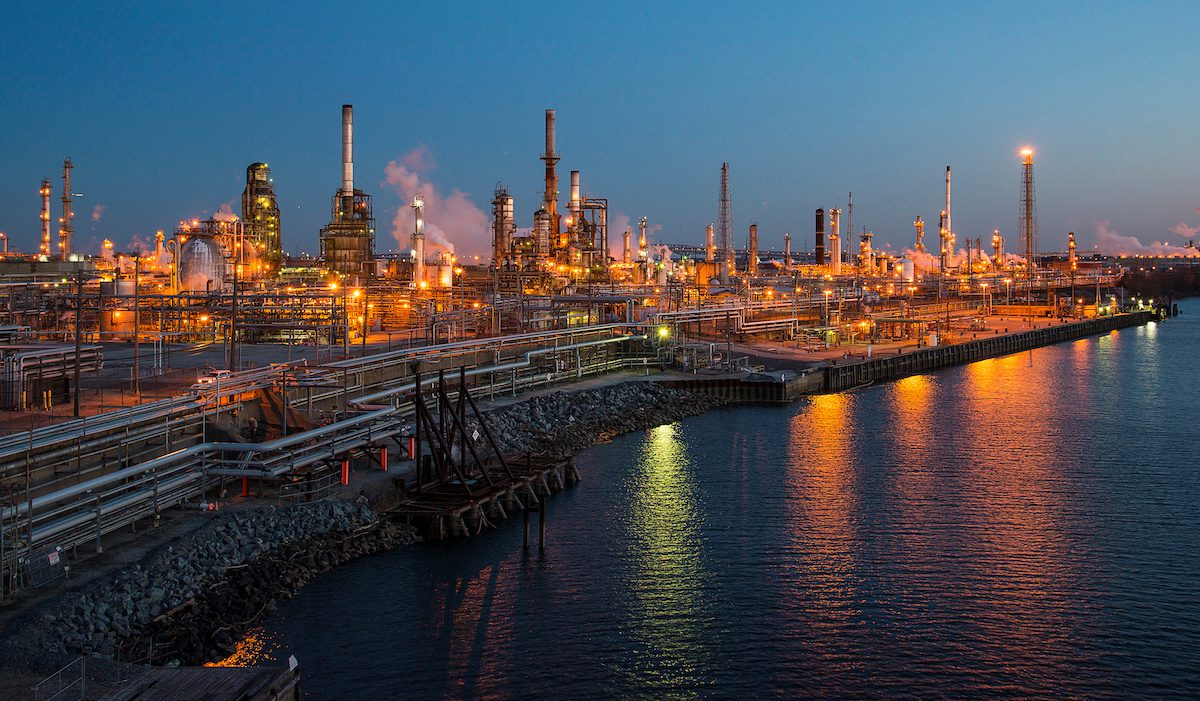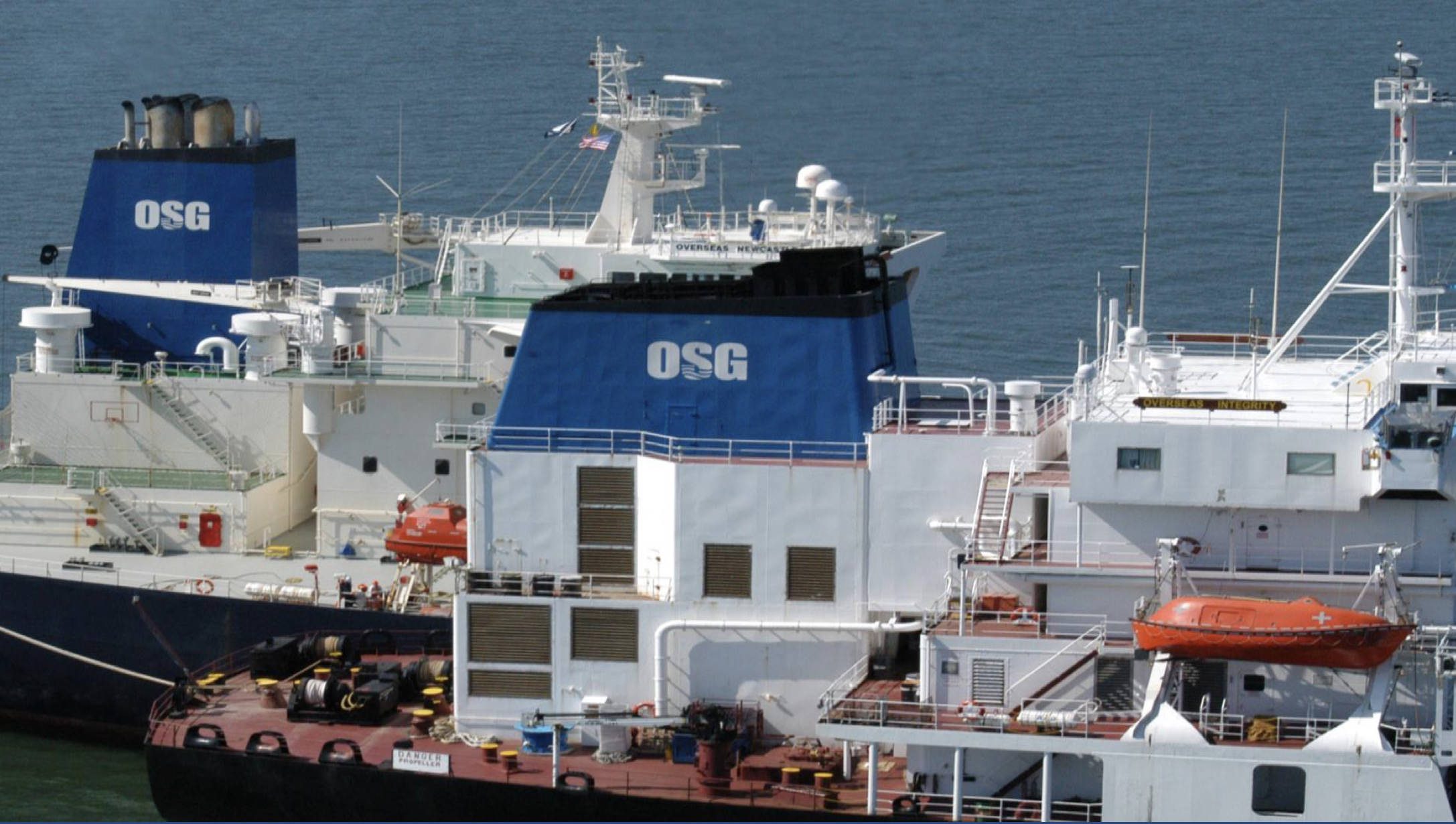FILE PHOTO: The Philadelphia Energy Solutions oil refinery is seen at sunset in Philadelphia March 26, 2014. Picture taken March 26, 2014. REUTERS/David M. Parrott/File Photo/File Photo
By Jeffrey Bair (Bloomberg) –U.S. East Coast ports can expect more cargoes like the one aboard the Maersk Cancun once Philadelphia Energy Solutions refinery shuts.
The tanker delivered 296,000 barrels of reformulated gasoline from the Netherlands to New Jersey last Thursday, on the eve of the fire that sealed the fate of the plant, data compiled by Bloomberg shows. Flows are set to increase, according to ship-tracking and chartering data compiled by Bloomberg.
Suppliers in Canada, Europe and the U.S. Gulf Coast are likely to pick up most of the slack, with sophisticated refineries in India also sending more cargoes through the Suez Canal to New York. Already, traders are paying more to reserve space on Colonial Pipeline, which can move more than 1 million barrels a day of gasoline from Texas and Louisiana to the Eastern Seaboard.
New York Gasoline Suppliers
The line had been running below capacity for much of the first half of the year, as ample supplies from abroad supplemented local production.
Now, with gasoline supplies cut by more than 100,000 barrels a day, the line will likely be full, while the Jones Act — which requires deliveries between U.S. ports be carried on American-built and flagged vessels, staffed by Americans — limits how much fuel can be shipped on the water from the Gulf Coast. That will leave most of the additional fuel coming from across the Atlantic.
Ten tankers sailed for the U.S. East Coast from June 21 through June 25, carrying about 50% more fuel than loaded in the first 20 days of the month. The incoming supply is weighing on futures prices. July futures on the New York Mercantile Exchange were down 2.11 cents Thursday to $1.9493 a gallon, and New York cash markets were little changed versus futures.
The rise in prices and refining margins should benefit nearby fuel makers such as PBF Energy Inc., which operates two facilities near Philadelphia, and Irving Oil Ltd., whose eastern Canadian facility is already a major supplier to New England. It will also increase demand for tankers able to bring fuel in from Europe and beyond.
More Imports
“This loss of supply will predominantly be made up through imports,” said Andy Lipow, oil analyst at Lipow Oil Associates in Houston. “But in that case, the extra demand for cargoes is going to drive up freight rates, and that will be passed on.”
India’s Reliance Industries Ltd., which operates the world’s largest refinery complex at Jamnagar, India, and has frequently sold high-octane gasoline to the U.S. coasts and the Caribbean, may ship more cargoes to New York.
“Retail gasoline prices in the Northeast region of the U.S. will become increasingly dependent on import economics from Europe and have potential to experience a sustained increase,” said Marc Amons, senior research analyst, North America refining at Wood Mackenzie, in an emailed statement. That leaves the remaining East Coast refiners well-positioned to capitalize on stronger margins, he said.
–With assistance from Jack Wittels, Barbara Powell and Prejula Prem.
© 2019 Bloomberg L.P
Unlock Exclusive Insights Today!
Join the gCaptain Club for curated content, insider opinions, and vibrant community discussions.

 Join The Club
Join The Club







![A screengrab of a map showing an earthquake Mindanao, Philippines on Dec 2, 2023. (Image: US Geological Survey [USGS])](https://gcaptain.com/wp-content/uploads/2023/12/Screenshot-2023-12-02-at-10.45.17-AM-copy.png.webp)





